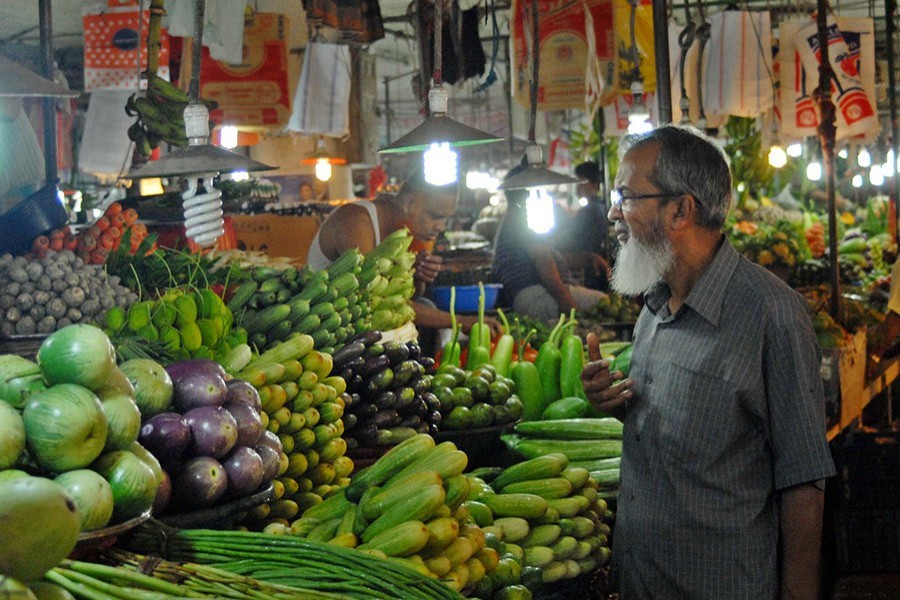Every year before the holy month of Ramadan, consumers are assured of steps to contain rising prices of essentials. Both the business circle and the commerce ministry express the resolve to maintain stability between the demand and the supply in the market. In reality, though, hardly a Ramadan has passed without experiencing arbitrary price hikes of several commodities. For the past few years a pattern has been set. It is the one characterised by moderate rise in prices of most commodities but outlandish price hike for one or two essentials.
This year the commerce minister wanted to give a clear message to traders. So he held a few rounds of talks with representatives of businesspeople. Both sides agreed that commodities requiring import supplements had adequate stocks well in advance and there was no reason for essentials' price increase during Ramadan.
The business community of the country may appear to have kept its words. Yes, traders may not go for price hike during the holy month, but if they raise prices more than two weeks before the month of Ramadan, they may claim, they are not in breach of their promise. They have been doing this in order not to take the blame. Within the past three or four days, onion, garlic, ginger chickpea and sugar along with vegetables have registered unwarranted price hikes.
Lame excuses of supply disruption have been advanced for increase in price of sugar. Then, storing of onion and garlic has triggered their price rise, they argue. The idea is to push up prices of the commodities in high demand during the Ramadan to several notches so that there will be no need to raise their prices during the holy month. Traders will be in a position to claim that they kept their words they gave to the commerce minister.
This is, however, still an assumption. No one knows if they will keep their words till the end. In the past, they had hardly bothered to go by their words. On this or that pretext, they skirted around legal bindings or norms to impose their market diktat caring little either for religious consideration or business ethics. If past experiences are any guide, many businesses have targeted the biggest religious festivals to make the most of those occasions. Contrary to Western world where prospects of increased sale during festival times prompt traders to lower prices of articles and commodities, here things are completely reversed. Less profit is more than recompensed by huge sale and trader there also have the consolation of taking part in some charity work.
That business also thrives on honesty and dedication is not found in most traders' lexicons here. An unhealthy competition drives many traders blind and no moral compunction will act as a deterrent against taking the wrong route. The practice resorted to may not be declared outright crime but it should gnaw at the conscience of those who stoop low to ensure exaggerated profits.
The authorities have so long either proved powerless or have not dealt with the situation as seriously as it demanded. Monitoring of the market and staying vigilant against any attempt to create an artificial crisis of commodities may be the first step. Then warning against such ploys followed by some stringent actions may be effective. Some argue that the Trading Corporation of Bangladesh (TCB) can play a role in this regard. But as long as it has not been strengthened enough to make an impact on the market with its supplies, its intervention will be of no use. In market economy, this is not quite possible. Better create an environment where businesspeople feel prompted to do honest business.


